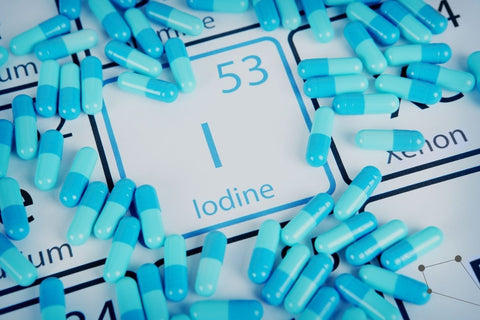According to the Australian Bureau of Statistics, an Australian Health Survey conducted in 2011-2012 assessed the iodine status of Australians and found that 15% of Australian adults aged 35 to 54 years old had results consistent with moderate clinical iodine deficiency (urinary iodine concentration less than 50mcg/L). This is despite introduction of a national fortification program in 2009 mandating the fortification of bread with iodine.
In 2011, Tasmanians were found to have the lowest iodine levels in the country with a median level of 108mcg/L (with adequate levels considered to be greater than 100mcg/L); and 14.9% of Tasmanians found to have levels lower than 50mcg/L (consistent with moderate Iodine Deficiency). Again, this is despite Tasmania being the first state in Australia to introduce a voluntary fortification program a decade earlier. Tasmania generally has substantially lower levels owing largely to the low levels of iodine in soil.
Overall, the results of the national survey suggest that a significant proportion of Australians have low iodine levels, with around 3.8 million Australians likely to be iodine deficient based on these statistics. In fact, certain groups are at higher risk of iodine deficiency, including those who avoid the food groups with highest levels of iodine (bread, eggs, milk, fish and iodised salt) and people who are of lower than average BMI. It is also important to note that organic bread lacks iodine.
Iodine deficiency is an important cause of health problems such as underactive thyroid (hypothyroidism) and intellectual disability, especially in children born to mothers with low levels of iodine. For this reason in particular, it is recommended that all pregnant and lactating women take an iodine supplement of around 150mcg per day. Signs and symptoms of underactive thyroid include: hair loss, mental slowing, weight gain, constipation and intolerance to cold weather.
Testing for iodine status is not common practice amongst conventional medicine practitioners and GPs, even for those who have proven underactive thyroid. However, it is possible to get thyroid testing done through a GP if there are convincing symptoms of thyroid deficiency. In addition, it is also possible to get iodine levels tested through some integrative medicine and functional medicine doctors in Australia. For those at higher risk of iodine deficiency such as underweight individuals, pregnant or lactating women, or those with dietary preferences that avoid bread and iodine-rich foods, it would be beneficial to consider routine iodine supplementation.
SUMMARY
In summary, it appears that despite Australia being considered a developed country in which iodine deficiency is not a major health issue, the most readily available data suggest that iodine deficiency is relatively common in adult Australians and, consequently, some may benefit from regular iodine supplementation.
Source:
1. Iodine [Internet]. Australian Bureau of Statistics. 2021 [cited 4 June 2021]. Available from: https://www.abs.gov.au/articles/iodine


